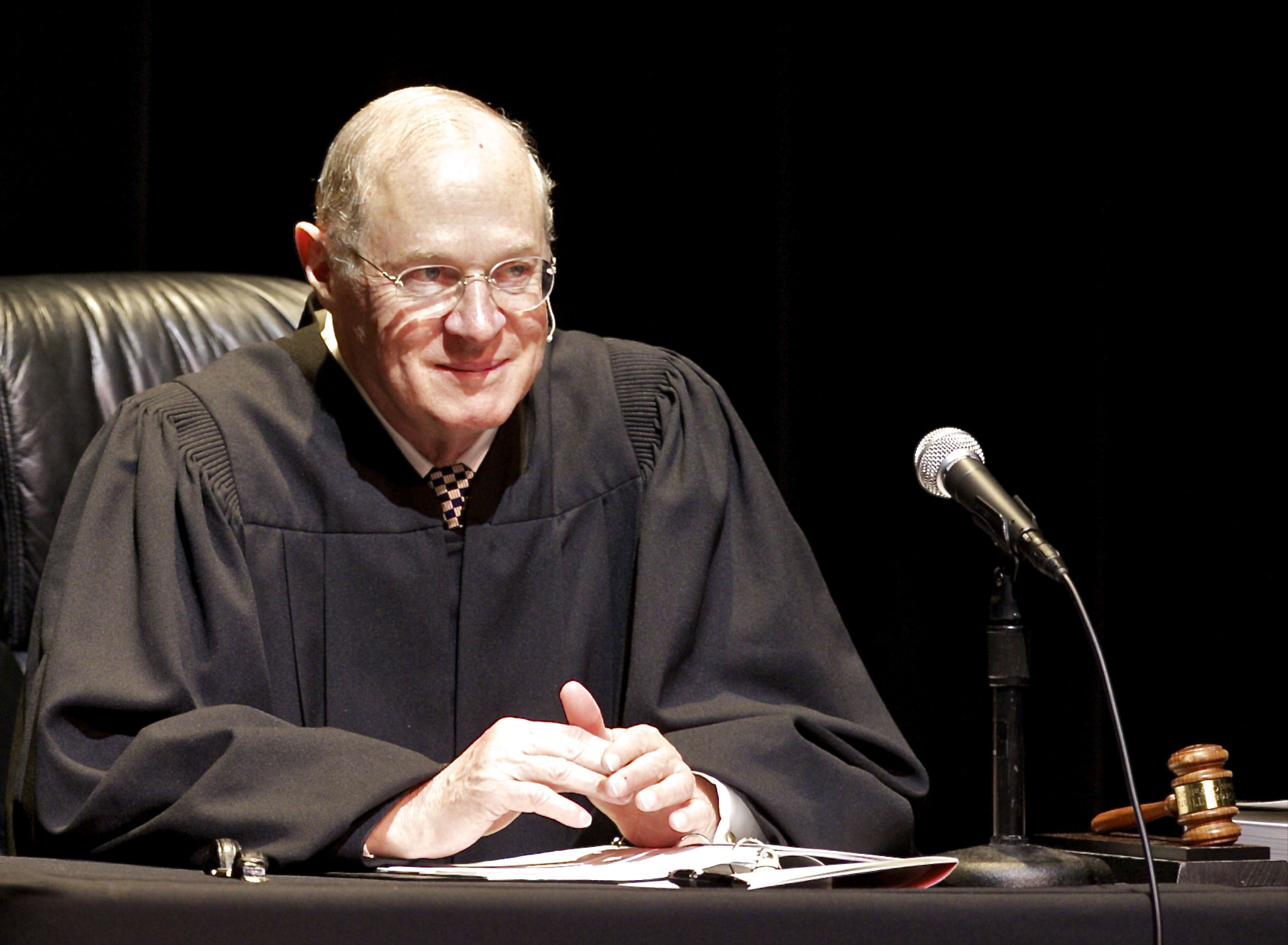After a whirlwind week of consequential rulings covering everything from travel bans, abortion and public employee union dues, Supreme Court Justice Anthony Kennedy has announced his will retire from the bench as of July 31, 2018. Nominated by President Reagan in 1987, Kennedy has been considered a “swing vote” on the court, often playing the role of tiebreaker between the court’s liberal and conservative justices.
Kennedy’s retirement means that President Trump will get a second nomination to the high court following the nomination of Justice Neil Gorsuch shortly after Trump took office in 2017.
NBC News reports on the Kennedy retirement and the ramifications it could have for the balance of the court:
Supreme Court Justice Anthony M. Kennedy announced Wednesday that he will retire at the end of next month, preparing the way for the most significant change in the court’s makeup in half a century.
The vacancy will allow President Donald Trump to make the U.S. Supreme court a solidly conservative body for years, if not generations, to come — a towering legacy of his time in office.
Kennedy’s departure on July 31, which had been rumored for the last year, could also put in doubt the future of a nationwide right of access to abortion.
“Justice Kennedy was the most important member of the court in a century, maybe ever,” said Tom Goldstein, a Washington lawyer who argues frequently before the court and publishes the SCOTUSblog web site.
Kennedy turns 82 in July and is the court’s second-oldest justice. Ruth Bader Ginsburg is 85.
Since 2006, when moderate conservative Sandra Day O’Connor left the court, Kennedy has been the swing justice, often casting the deciding vote in the most high-profile cases.
Joining the court’s four other conservatives, he voted to gut the landmark Voting Rights Act, allow corporations and unions to spend unlimited funds to support candidates and give new life to the Second Amendment right to own a gun.
But he joined the liberals in banning capital punishment for the youngest offenders, declaring that prisoners at Guantanamo Bay had a right to challenge their detentions and limiting the powers of the states to enforce their own tough immigration laws.
In all likelihood, the court will become more conservative with Kennedy stepping down. President Trump will likely seek a nominee in the mold of Neil Gorsuch as his second replacement to the bench.
A Trump-nominated successor to Kennedy would likely become the court’s fifth reliable conservative, joining Chief Justice John Roberts and Justices Clarence Thomas, Samuel Alito and Gorsuch. Because only Thomas has declared opposition to Roe v Wade, it’s uncertain whether opponents of abortion would have the five votes needed to overturn it.
Kennedy’s departure will be the first major shakeup to the court’s ideological balance in years. Justice Gorsuch was tapped to replace deceased Justice Antonin Scalia, a solid conservative vote, so the makeup of the court remained as it was for the most part.
As CNN reports, Kennedy was pivotal for liberals on some major decisions, but lately he has sided with the conservative wing:
This term, Kennedy voted with his conservative colleagues in cases concerning issues such as the travel ban, religious liberty, voting rights, arbitration agreements, corporate liability and public sector unions.
“Although there were 19 5-4 decisions, none of those saw Justice Anthony Kennedy siding with the four more progressive justices — as he has done so often in high-profile cases in recent years, such as the gay marriage ruling in 2015,” said Steve Vladeck, CNN Supreme Court analyst and professor at the University of Texas School of Law.
We should get word soon on how quickly the White House will name a replacement nominee, and then we can look forward to a grueling and arduous confirmation process during this pivotal election year. Let the grandstanding begin!
Donate Now to Support Election Central
- Help defend independent journalism
- Directly support this website and our efforts
